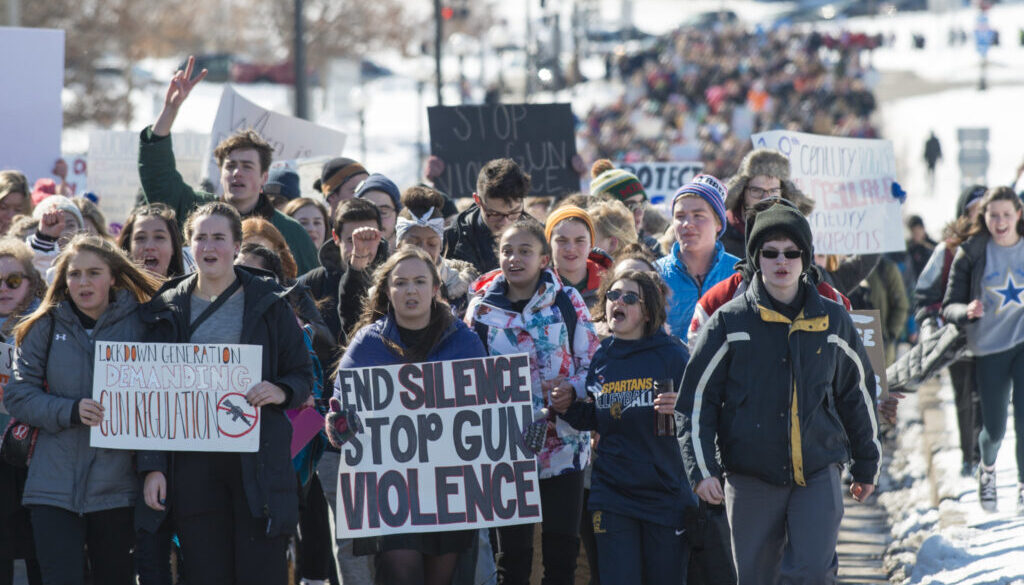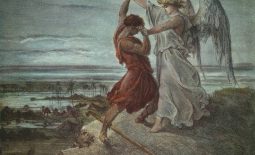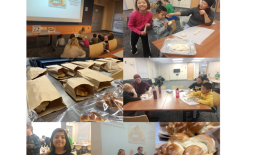I Will Remember the Land
I cannot offer you a nechemta, dear brothers and sisters, dear siblings.
A nechemta is a rabbinic offering of comfort or consolation in the form of a sermon or teaching. It is meant to frame difficult truths, soften moral injury and uplift hearts. And I cannot give it you; not even on this holy Sabbath. In fact, it may even be immoral if I attempted to; if we try to push aside our grief, our pain, our brokenness, to embrace the soothing balm of platitudes, then I must confess my failing: I cannot do it.
We are broken. America is broken. We are a nation mired in sin, steeped in idolatry. Not the sin moral crusaders voyeuristically emphasize; sins so small they fit through the keyhole of our bedrooms. Neither the idolatry as defined by the doctrinal and small-minded, the so-called heresy of the questioning mind. Our sin and idolatry are placing a price tag on life, a target on our children.
We are all profoundly shaken by the Buffalo racist massacre earlier this month, and the Uvalde, Texas school shooting this week. Innocent lives, Latino loves, black lives, elderly lives, young lives—stolen from us. Two teachers and nineteen children dead. Children the ages of my two oldest; their beautiful, innocent, happy faces beaming from our screens straight into our shattered hearts. There is nothing we can say that will lessen the pain, that will wrest meaning from the nihilistic chaos of preventable and cold-blooded murder. There is no theology or theodicy adequate for this moment; the only morally appropriate response religion can muster is Prophetic rage.
Perhaps this is all there is to say; that saying more risks opening the door of the grotesque. But saying less is also not an option, except for the silence of Shivah; the leaden weight of words not spoken. But contrition can never spill over acquiescence, into ‘nothing can be done and nothing will change.’ We cannot continue to go through these toxic, deadly cycles of shootings, slaughtered innocents and ‘thoughts and prayers.’ I have no thoughts and prayers to give. The Prophet Isaiah spoke thousands of years ago, addressing another nation riven by violence and sanctimony. With the lashings of tongue, Isaiah made clear the moral catastrophe of his age:
‘Ke’tzinei Sedom… v’am Amorah’, ‘you chieftains of Sodom, you people of Gomorrah.’ ‘Lamah li rov ziv’cheihem’ – ‘what to Me are all your offerings?’ –
‘Uv’farish’chem kapeichem’ … ‘though you spread your palms [in prayer]…
‘Eineini shomea, yadeichem damim mal’e’u’ – ‘I do not listen, [for] your hands are filled with blood.’ (Isaiah 1:15).
The space between speaking and silence is listening. Listening to the victimized families. Listening to the activists who are working hard on the ground to effect change. Listening to the high calling of our tradition. We cling onto our Tree of Life and seek the wisdom she can offer.
This week’s portion could not be more fitting for our national mood of mourning. Parashat Bechukotai is among the most gruesome of the Torah, enumerating an avalanche of cruel curses. If we violate the terms of the covenant, if our hearts remain uncircumcised, Leviticus teaches us, then we too will become mired in the consequences of our own transgression. Each curse visited is more horrifying than its predecessor. Plague, exile, war, death—culminating in, for lack of a better word, parental cannibalism.
The Torah presents us with a stark mirror: to what level of degradation must a society sink for mothers to eat their own babies? It’s right there in the text. A testimony to the warped and unnatural; the negation and inversion of the highest of human covenants—the unconditional love between parents and children. We ordinarily read it in a whisper during the Torah service because these words should leave us with shamefaced and trembling.
Now, we must confront our shame and read them out loud.
‘V’achaltem basar beneichem uv’asar benoteichem tocheilu.’ – ‘And you shall eat the flesh of your sons and the flesh of your daughters you shall eat.’ (Lev. 26:30).
Let us feel the weight of this horror. Let us sit, aghast, with the truth that we feed our children to the Molochs of unregulated guns and vested interests; we cannibalize our future generation, the apples of our eyes, through our complicity. There is no greater forsaking of the covenant of humanity than this; it is a betrayal against our very nature and a spurning of the Divine.
There is no nechemta. Not right now. Not yet. We must first grieve and then organize.
The paradox is that Bechukotai does end with a nechemta. Even the horrors of Leviticus are not enduring. The covenant is restored, the moral arc of the universe bending once more towards justice. Once we commit to a process of t’shuvah, of sincere repentance and repair, and we circumcise our hearts, we will find our way back to justice, wholeness and peace. It is the ending we all ache for; as we sit here tonight in the comfort of this space, wrapped in melodies of grace. We ache for nothing more but to retreat into the sh’leimut, the wholeness, of Shabbat and unburden ourselves for this brief time. It is a natural and human response. Perhaps some of us can; and others of us cannot.
But that unburdening is not up to me; I cannot give myself permission to offer words of release when so much is still broken and the dead still lay before us. We sit, suspended in time, unresolved, seeking to bridge the chasm between what is and what ought to be. ‘V’zacharti et briti… v’ha’aretz ezkor’, the portion tells us. ‘And I will remember My covenant and remember the land.’
The question remains for us here in these United States of America: do we remember our covenant and our land? Not until, as Jeremiah reminds us, we no longer defile the land with the corpses of abominations (Jeremiah 16:19) and we, according to Isaiah, commit ourselves fully to justice, until we ‘cease to do evil, learn to do good, devote [y]ourselves to justice, aid the wronged, uphold the rights of the orphan, defend the cause of the widow.’ (Isaiah 1:16-17).
What is, I wonder, the inversion and extension of the orphan? The parent who has to bury their young child before their time?
Dear brothers and sisters, there is no nechemta, aside from the nechemta we bring to each other through rising up to the cause of justice, for resisting this culture of death, for organizing during the unseen parts of the day and the quiet hours of the night? For linking up with our fellow citizens, no matter how different or how far from us they may seem? The nechemta lies in pulling the levers of democracy in a direction that ends this obscenity once and for all. Then the sun shall rise with healing in its wings.
Until that time, we mourn—and we fight.




